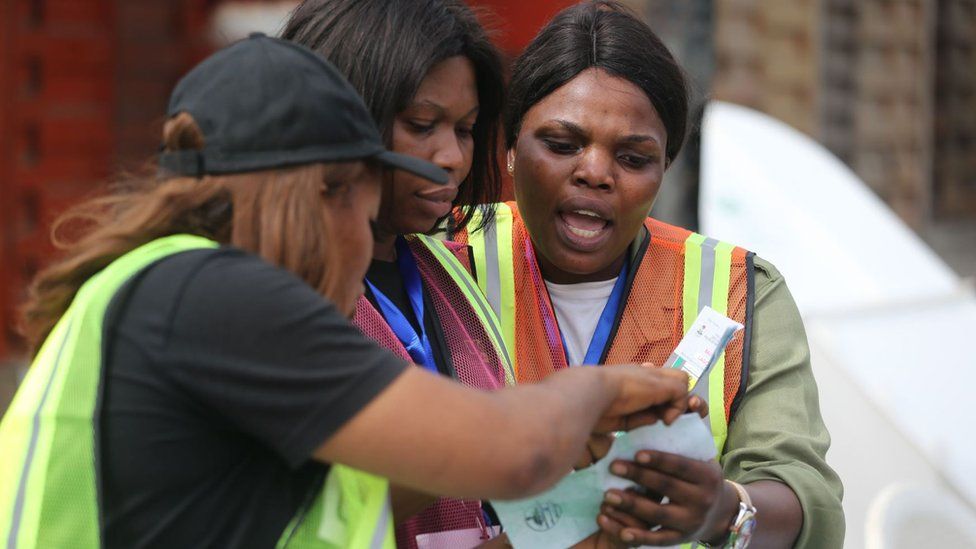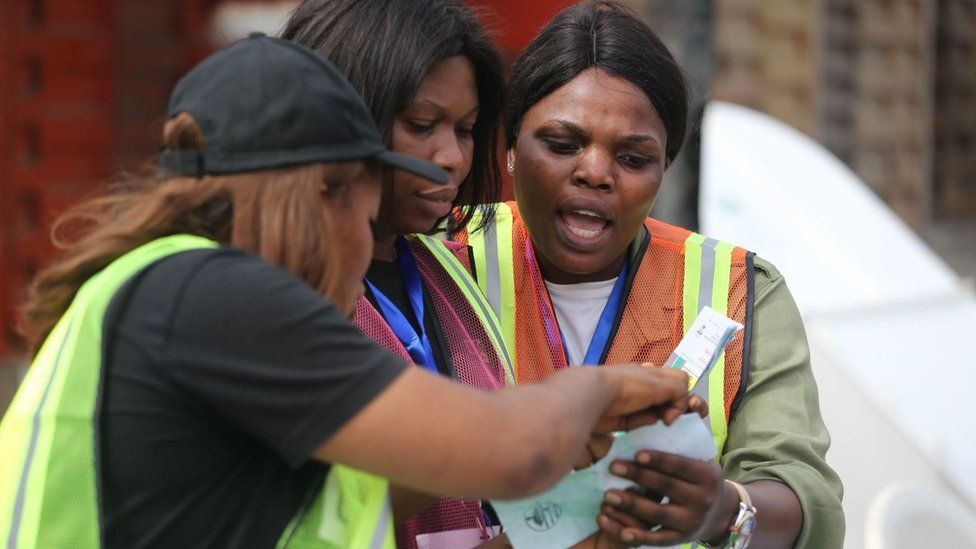
ABUJA, Feb 27 (NNN-AGENCIES) — Nigeria announced initial results after a tight election for the presidency of Africa’s most populous nation, marked by widespread voting delays and early accusations of attempts to manipulate ballot counts.
Nearly 90 million were eligible to vote on Saturday for a successor to President Muhammadu Buhari, with many hoping a new leader would do a better job tackling insecurity, economic malaise and growing poverty.
The election went ahead mostly peacefully, despite some ransacked polling stations and late starts at many others. Voters stayed up late at night in many locations to observe the count and “protect” the ballots.
The election pits former Lagos governor Bola Tinubu, 70, of the ruling All Progressives Congress (APC) against former vice president 76-year-old Atiku Abubakar, of the Peoples Democratic Party (PDP).
But for the first time since the end of military rule in 1999, a surprise third-party candidate, Labour Party’s Peter Obi, has challenged the APC and PDP dominance with a message of change and an appeal to younger voters.
Announcing first results state by state, Independent National Electoral Commission (INEC) said APC’s Tinubu easily won small, southwestern Ekiti state with PDP coming second.
To win the presidency, a candidate must get the most votes, but also win at least 25 per cent of votes cast in two-thirds of Nigeria’s 36 states to reflect wide representation.
INEC said problems with uploading results on its IReV data page were due “technical hitches” and there was no risk of tampering.
“The commission wishes to assure Nigerians that the challenges are not due to any intrusion or sabotage of our systems,” it said in a statement.
“It is important to avoid statements and actions that can heat up the polity at this time.”
In Lagos and other cities, crowds stormed polling stations late on Saturday as electoral officials tallied the first results by hand and read out the counts before transmitting them to the central database.
On Sunday morning, people gathered at a newspaper stand in the Falomo area of Lagos, eager for results to come in and expressing hope this election would bring change.
The success of Nigeria’s vote will be closely watched in West Africa, where coups in Mali and Burkina Faso and growing Islamist militancy have taken democracy in the region back a step.
Buhari, a former army general first elected in 2015, will step down after two terms in office. His critics say he failed in his key promises to make Nigeria safer.
Whoever wins the election must quickly get to grips with Africa’s largest economy and top oil producer, beset by problems from a grinding jihadist war in the northeast to double-digit inflation.
APC’s candidate Tinubu, a long-time political kingmaker and southern ethnic Yoruba Muslim, says “It’s my turn” for the presidency. He says his experience as Lagos governor will count.
He faces a familiar rival – PDP candidate Abubakar, a Muslim from the northeast who is on his sixth bid for the top job and touts his business experience to fix the economy.
But both are old guard figures who have fought off past corruption accusations, and the emergence of Obi, a Christian ethnic Igbo from the southeast, threw the race open. — NNN-AGENCIES






